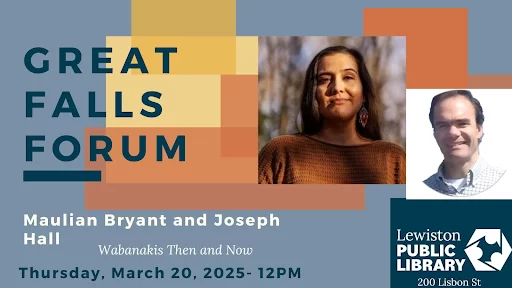What Is Public Scholarship?

All Bates faculty members are scholars, but not all are public scholars. Public scholarship is research-based work for audiences beyond the academy. It can take many forms, but public scholarship typically involves the creation or circulation of knowledge to address issues of public concern, increase public knowledge, or contribute to the public good. And it tends to be shared in publicly-available modes or contexts, like podcasts, websites, and community forums. Often, public scholarship involves mutually-beneficial partnerships between higher education and organizations in the public sector.
Numerous Bates faculty members produce public scholarship themselves or help their students do so in community-engaged learning courses or theses. Just last week, Associate Professor of History Joe Hall’s public scholarship took center stage in two different venues. Hall, whose research focuses on the interactions between Native Americans and Europeans in the colonial period, frequently uses his expertise to address issues of public concern. Last year, for instance, our Bates colleague Mary Pols wrote about how Hall used his knowledge of Wabanaki history to correct two newspaper stories about the development of Brunswick, Maine.
At last week’s Great Falls Forum at the Lewiston Public Library, professor Hall was featured alongside Maulian Dana Bryant of the Penobscot Nation in a standing-room-only program entitled, “Wabanakis Then and Now.” Drawing on his extensive knowledge of Wabanaki history, Hall provided the “then” to Bryant’s “now.” Also last week, Hall was spotlighted by national higher ed consortium Project Pericles for a course in which his students undertook their own public scholarship, “bridging historical scholarship with civic impact.” In partnership with Wabanaki educators, Auburn Public Schools, and the Maine Online Open-Source Education (MOOSE) project, Hall’s students worked to develop educational materials to integrate Wabanaki history into local schools. Read that story here.
Kudos to public scholar, professor Joe Hall!